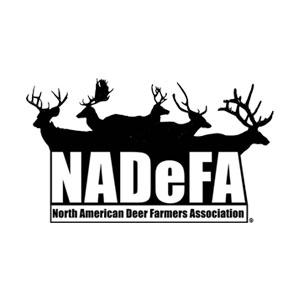Deer Management
The basic needs of deer are like all animals, fresh water, a feed source, and vitamins and minerals. Deer are raised in high-fence enclosures with proper bedding and ventilation to fit environmental conditions. Supplemental feeding of wild deer is controversial and illegal in many states.
When it comes to fawns, colostrum and the timing of colostrum are essential for health and growth. Does produce antibody-rich colostrum prior to milk for their fawns. Colostrum should be either drank from the mother or given via a bottle within the first four hours of birth. Without colostrum the fawn will have a weakened immune system.
Shelled corn is sometimes fed to deer, though it provides carbohydrates, it lacks in crude protein content. Therefore, it is insufficient for growth, reproduction, lactation, and optimal antler production. If feeding shelled corn, be sure to fee a low aflatoxin corn.
Pelleted feeds provide a nutrient supplement that aid in antler growth, reproduction, and lactation due to not only the protein content, but also the increased vitamin and mineral levels. Each deer in confinement should consume 1 to 2 pounds of feed per day dependent upon its body weight and body condition score. The feed should be fed in a free-choice covered trough or self-feeder, as well as a good quality legume hay.
Each fawn should be identified and monitored for weight gain and health. If health issues are noticed, a disinfect pen should be established that allows for doctoring, observing, and providing extra care to those animals. They should also be evaluated as to the possibility of either keeping that fawn to be a replacement sire or dam on the farm because of their phenotype and genotype or being raised for trophy hunts.
Most confinement deer are bred via artificial insemination partially since deer are prohibited to cross state lines. Deer have a 222-day gestation period.

